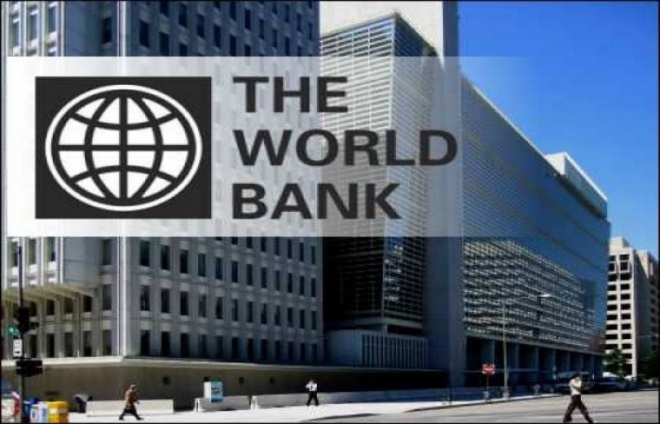The World Bank has disclosed that Ghana has made progress on debt restructuring in the last year but public debt remains unsustainable without the completion of external bilateral and commercial debt restructurings.
At the end of 2022, public debt reached 92.2% of Gross Domestic Product (about $66.5 billion), with domestic public debt at 50% of GDP and external debt at 43%.
The completion of domestic debt restructuring in September 2023 helped reduce public debt to 82.9% of GDP by the end of the year, and an agreement in principle was reached with external official creditors in January 2024 and with external commercial creditors in June 2024.
However, the Washington-based lender said Ghana remains in debt distress and remains unsustainable without the completion of external debt restructuring in line with the joint Debt Sustainability Analysis (DSA) parameters.
In its 2024 Ghana Economic Update, the World Bank said that though a firm monetary policy tamed high inflation last year and allowed a stable exchange rate, some inflation pressures have reemerged in 2024.
“The disinflationary trend of 2023 was driven by a rigorous monetary policy stance, particularly the progressive increase of the monetary policy rate by 1,100 basis points between March 2022 and year-end and another 200 basis points during 2023. The resulting disinflation contributed to relative stability in the exchange rate”.
“In the first quarter of 2024, rising food prices and exchange rate depreciation have contributed to an uptick in inflation, and given perceived upside risks, the Bank of Ghana is maintaining its tight monetary stance”, it added.
The data from the Bank of Ghana revealed that Ghana’s public debt increased by GH¢46.4 billion in the first two months of 2024 to hit GH¢658.6 billion ($53.1 billion).
The total public debt stock of the country is equivalent to 62.7% of Gross Domestic Product (GDP).
According to the Central Bank’s May 2024 Summary of Economic and Financial Data, the country’s debt ended 2023 at GH¢611.2 billion, but shot up to GH¢626.0 billion in January 2024 and subsequently to GH¢658.6 billion in February 2024.
Latest Stories
-
Gold Fields Ghana Foundation challenges graduates to maximize benefits of community apprenticeship programme
34 mins -
GBC accuses Deputy Information Minister Sylvester Tetteh of demolishing its bungalow illegally
45 mins -
Boost for education as government commissions 80 projects
57 mins -
NAPO commissions library to honour Atta-Mills’ memory
1 hour -
OmniBSIC Bank champions health and wellness with thriving community walk
1 hour -
Kora Wearables unveils Neo: The Ultimate Smartwatch for Ghana’s tech-savvy and health-conscious users
1 hour -
NDC supports Dampare’s ‘no guns at polling stations’ directive
1 hour -
Police officer interdicted after video of assault goes viral
2 hours -
KNUST’s Prof. Reginald Annan named first African recipient of World Cancer Research Fund
2 hours -
George Twum-Barimah-Adu pledges inclusive cabinet with Minority and Majority leaders
2 hours -
Labourer jailed 5 years for inflicting cutlass wounds on businessman
2 hours -
Parliament urged to fast-track passage of Road Traffic Amendment Bill
2 hours -
Mr Daniel Kofi Asante aka Electrician
2 hours -
Minerals Commission, Solidaridad unveils forum to tackle child labour in mining sector
2 hours -
Election 2024: Engagement with security services productive – NDC
3 hours

